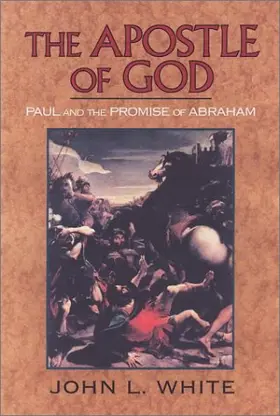Most interpreters of Paul emphasize that for Paul, God, as universal lawgiver and judge, effects righteousness through Christ's saving death, that is, along lines entirely compatible with Paul's previously Pharisaic understanding of God. But since for Paul the power of Torah and tradition to save had in essence its legs kicked out from under it, the questions need to be asked, What made it possible for Gentiles to be saved? What effect did Paul's conversion have on his understanding of God? Loyola University Professor John L. White contends that to understand the Christ-event in accordance with Torah and Jewish tradition, Paul—the Apostle to the Gentiles—recognized in Abraham and Sarah (as neither ethnically Jewish nor Torah-bound) the explanation for the new status of Gentiles. Because of Christ, the promised seed of Abraham, the Gentiles receive the blessing of Abraham. For the apostle of God, this revelation came not from others or from human teaching, but from his encounter with the God of Abraham and Sarah.
"In this unique study White proposes that Paul believed in a creator God who started spiritual creation with Abraham and continued with the resurrected Christ. The procreative God can be seen in Paul's use of analogies and rhetoric. Because of the new creation Paul expects a world in which God is the universal Father and in which Christ is Lord of God's universe and head of the family of faith. To demonstrate his thesis White includes extensive discussion of the Greco-Roman ruler cult and its impact on the readers of Paul's letters, as well as Paul himself. White's assertion that Paul's theology stems from a God of creation rather than a redeemer God will undoubtedly stimulate considerable discussion."
—Graydon F. Snyder, Professor of New Testament, Emeritus, Chicago Theological Seminary


